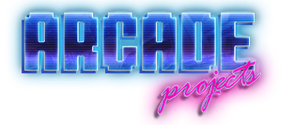We do have some stock on SCSI2SD V5.0c and V5.5 boards right now, but you're otherwise correct; We don't have stock on SCSI2SD V5.2's, simply because the manufacturer hasn't been able to supply the necessary semiconductors in nearly a year. We were therefore left with no choice but to pivot, and develop a new product, which was based on microcontrollers we could actually buy. The situation isn't much better with SCSI2SD V6 hardware either, as the FPGA used has been unobtanium for quite some time as well, due to the ongoing electronics component shortages, which are expected to last well in to 2023, and possibly even 2024.
AzulSCSI represents a fusion of SCSI2SD's very mature and fully-functional SCSI command handling codebase, but employs a fundamentally different configuration paradigm, which uses a images/ISOs represented as files. AzulSCSI's CD-ROM emulation is extremely straightforward to use. All you need to do is take an ISO or raw image file, put it on a FAT32 or exFAT-formatted SD card, of any size, with a file name that begins with "CDx.iso", where X is a unique SCSI ID between 0-7.
Performance-wise, AzulSCSI fits in-between SCSI2SD V5 and SCSI2SD V6. In effectively all scenarios, it's faster than SCSI2SD V5, but not as fast as V6.
Mechanically, the full-sized AzulSCSI board dimensions are identical to that of V5.1/V5.2/V6, meaning any SCSI2SD mounting solution for these boards will work equally well with AzulSCSI.
We're confident the AzulSCSI will work well with the CPS3. If you buy one and find it doesn't work for you, we'd be happy to either work with you to diagnose why, or give you a full refund, with return shipping on us.
You can learn more about AzulSCSI at
https://azulscsi.com, including where they can be purchased. Just as with SCSI2SD, the AzulSCSI firmware is open source, GPLv3-licensed code, which there's a link to on the AzulSCSI website.


